Computer Networks facilitate the sharing of information and resources between multiple nodes linked together. It is regarded as the backbone of telecommunication in the field of technology.
The other crucial term under networks is Computer Network security. It refers to the set of rules and configurations adopted to prevent and monitor network misuse, data modification (integrity), and denial of network access and resources.
Having understood these two terms, now we can look at Network Scanning. Network scanning mainly deals with security in computer networks. It is a procedure used to identify nodes on a network, services offered by different devices, identify network security systems in place, the operating systems, protect networks from attacks, and check the overall network health.
Best Network Scanners for Linux
In this post, we have handpicked the six best Network Scanners for Linux systems. When choosing a network scanning tool, a network administrator must understand the scanning capabilities of a particular utility and the functional areas it covers.
1. Nessus
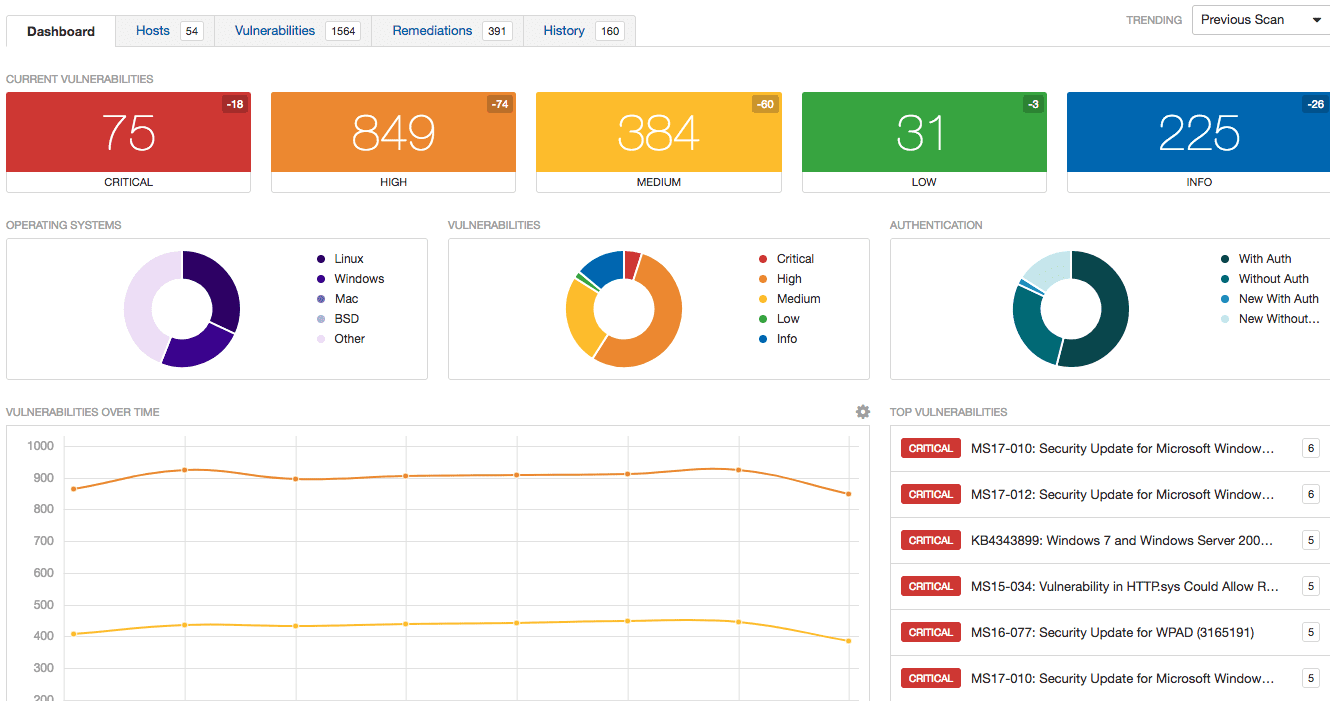
Nessus Dashboard
At the top of our list is Nessus. It is a popular tool used by network administrators to scan for issues in a network. Initially, Nessus was distributed as a freeware utility. That quickly changed with time; currently, it’s available as a commercial utility. However, there is still a free package of Nessus that only comes with limited features and capabilities.
Nessus comes in 3 packages, each having different capabilities. They include Nessus Home, Nessus Professional, and Nessus Manager or Nessus Cloud. Nessus has been designed to make the whole process of networking, scanning simple and straightforward.
Key Features
- Support for a wide range of systems, including cloud, OT (Operational Technology) devices, and traditional IT assets
- It is available with 70,000 plugins offering various vulnerability scanning services on a network.
- It offers support for network inventory with the available advanced features, e.g., automated scans, multiple network scans, and asset discovery.
- Offers accurate visibility into a network
- Support for both IPv4 and Ipv6 network scans.
- It offers support for automated scheduling of scans and analysis.
- Generate customized reports and notifications
2. Nikto
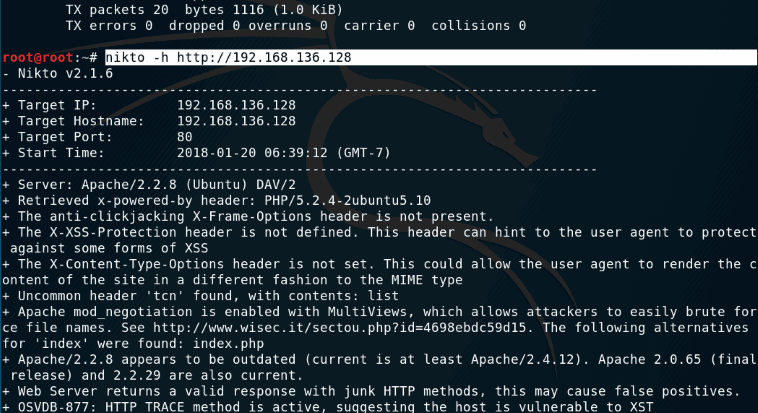
Nikto
Nikto is an open-source web server scanner distributed under the General Public Licence (GPL). Nikto analyses and performs rapid tests on web servers for up to 7000, potentially malicious applications and files. It also checks for outdated server versions and checks for server configurations objects like HTTP options, index files, etc.
Key Features
- It provides HTTP proxy support.
- Nikto supports report generation in several file formats, including XML, HTML, NBE, or CSV.
- Offers support scanning for multiple servers and ports via input file, which can include Nmap output.
- Enhances security by authenticating hosts with Basic and NTLM.
- Enables users to tune scans and include/exclude various vulnerability checks.
- Nikto provides a platform for report customization.
3. OpenVAS
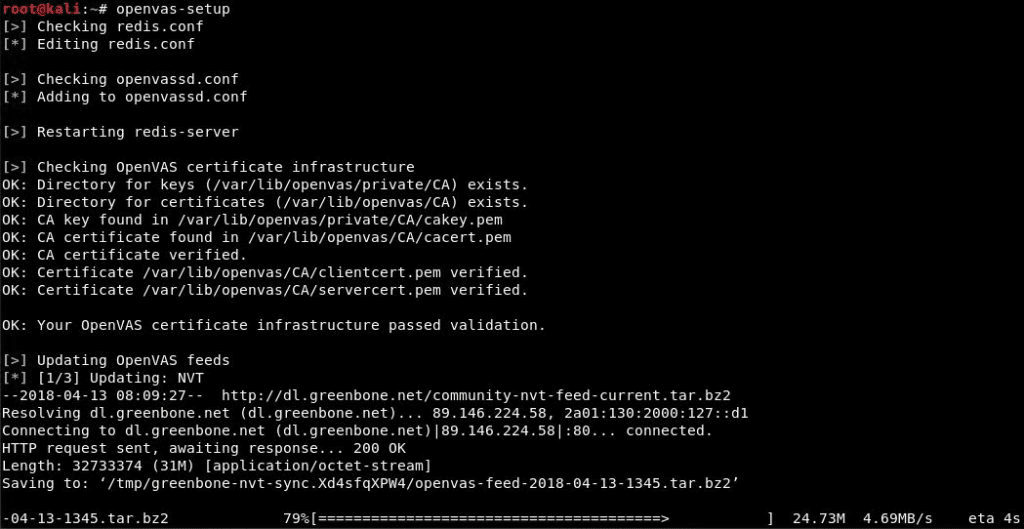
OpenVAS
OpenVAS is a free and open-source network security scanning utility distributed under the General Public Licence (GPL). Regarded as a vulnerability assessment tool, OpenVAS scans a network for connected servers, firewalls while listening for any configuration errors in the services running on these devices.
It comes with a unique feature that enables the assessment of solutions and reveals the false negatives and false positives. For any false positive, OpenVAS provides a report of why a particular vulnerability was flagged.
The tool supports three types of scans. They include a Full Scan, Web Server Scan, and WordPress Scan.
A full scan tests the network and all connected devices like servers and web applications for any vulnerabilities. A web server scan is used to test networks for any web servers and web application vulnerabilities. The WordPress scan, like the name suggests, examines a system for WordPress and web server vulnerabilities.
Key Features
- OpenVAS is an excellent vulnerability scanning utility with solution management.
- Provision of reports for risk assessments and mitigation.
- Support for intelligent custom scans.
4. Angry IP scanner
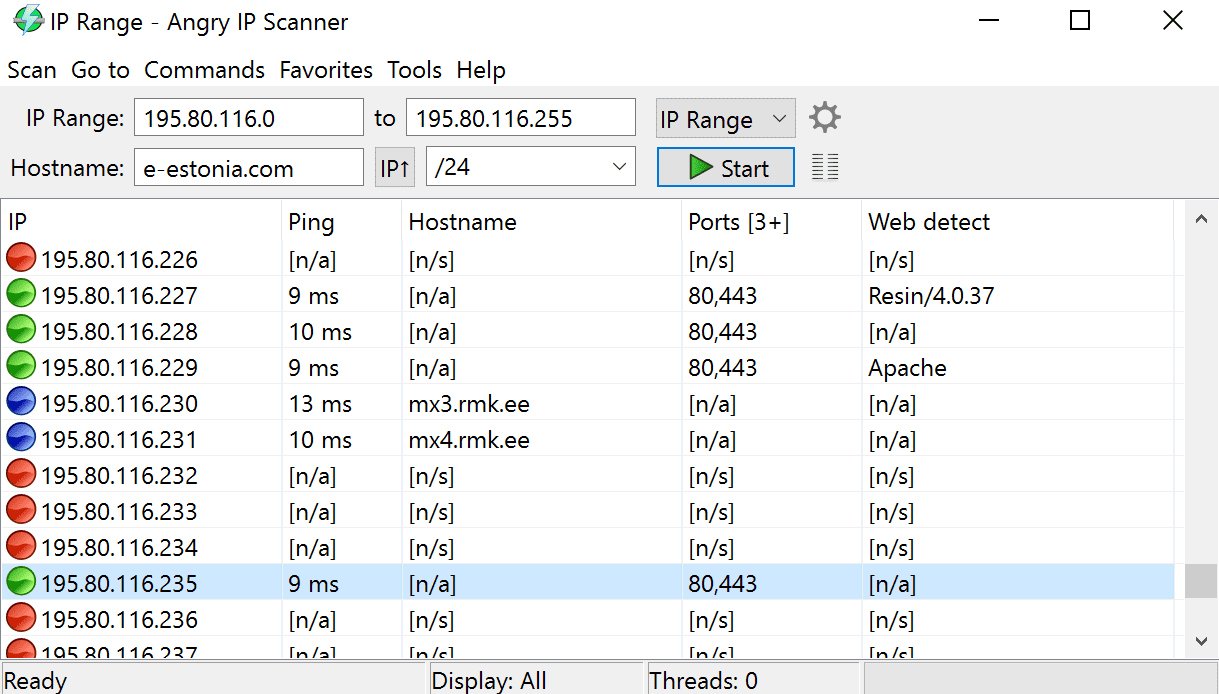
Angry IP Scanner
Angry IP scanner is a free and open-source network scanning tool used to perform IP addresses and Port scans. Every single scan provides information about nodes on the network like hostnames, MAC addresses, NetBIOS information, frequently used IP ranges, web servers presence, etc.
To speed up the network scanning process, Angry IP Scanner implements a multi-threaded approach with each thread scanning a different range of IP addresses. You can save the results in various file formats like CSV, TXT, and XML.
Key Features
- It supports the scanning of rapid IP addresses and ports.
- Implements multi-threaded scanning.
- Support for several file formats – CSV, TXT and XML.
5. Nmap
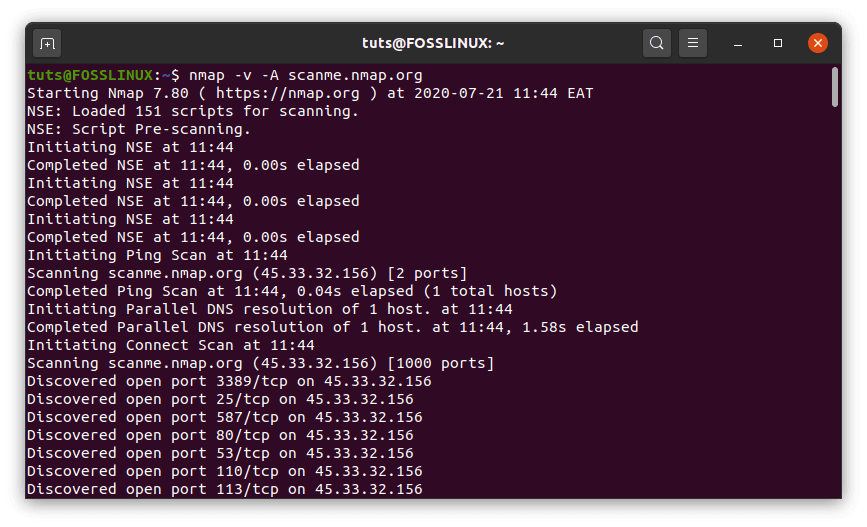
Nmap
Nmap is another popular tool available for both Network administrators and penetration testers. As the name suggests, Network Mapper (NMAP) maps a network and checks for vulnerabilities. It identifies nodes on a network, available hosts and services offered, discover open and closed ports, etc. The Nmap Scripting Engine helps in detecting network security issues and configuration errors.
Nmap is available as a Command-line (CLI) utility but has a GUI client known as Zenmap. Nmap can be used on small networks, scanning a single host and vast networks with thousands of nodes and subnets.
Key Features
- Ease of use
- Nmap Serves as a network inventory and mapping utility.
- Support for port scanning and auditing.
6. Qualys FreeScan
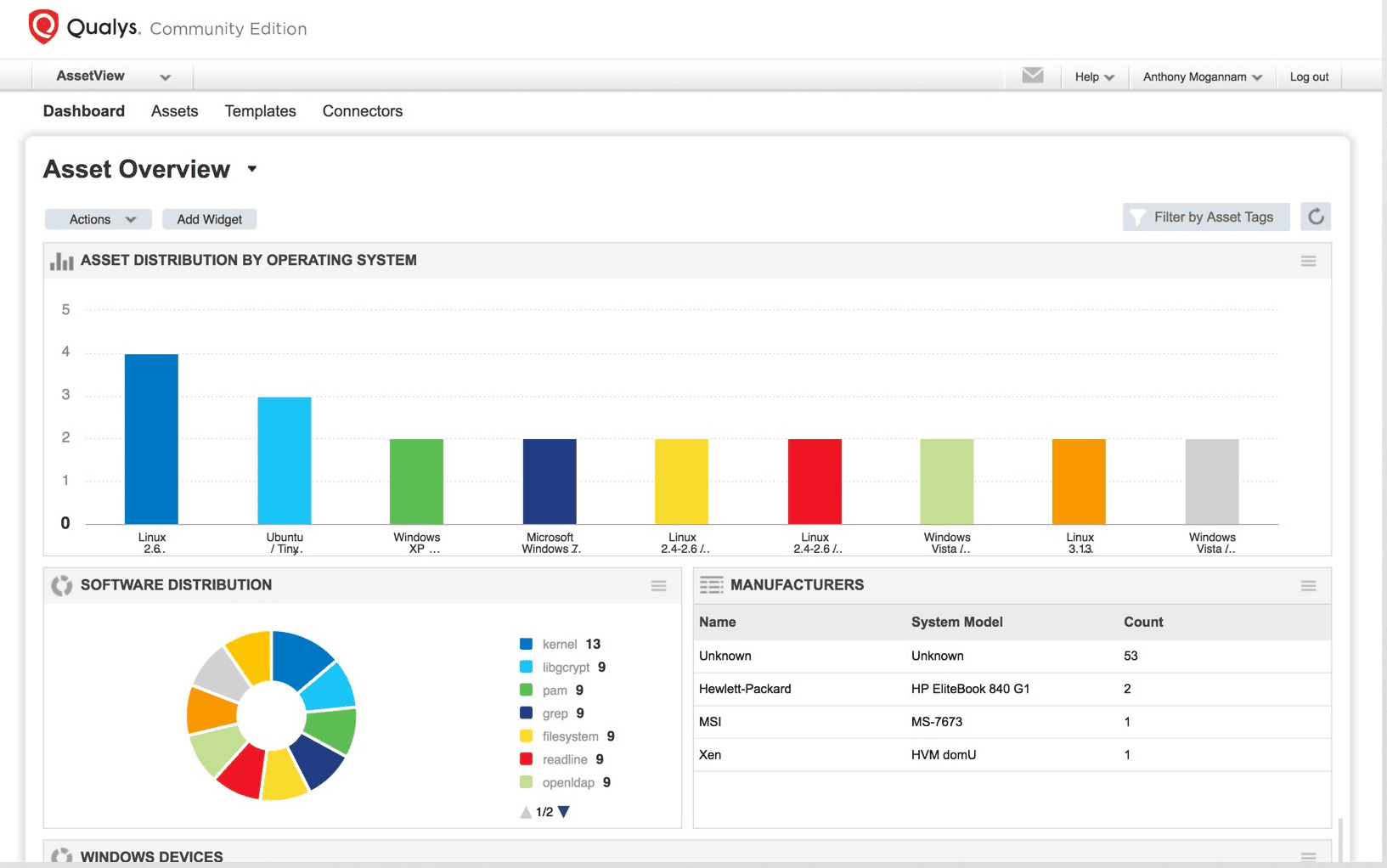
Qualys Freescan
Qualys Freescan is a free and open-source network scanning utility that helps businesses streamline their security and compliance solutions. It scans the network for URLs, IP addresses, and local servers for vulnerabilities.
It performs three primary checks on a network;
- Vulnerability checks: Tests a network for malware attacks and SSL issues.
- OWASP: Checks for security issues in web applications.
- SCAP checks: (Security Content Automation Protocol) checks computer configurations against security contents, i.e., SCAP.
Key Features
- Qualys performs detailed network vulnerability checks.
- Support for web application auditing.
- Qualys responds to threats in realtime.
- It supports only up to 10 free scans.
Conclusion
Every network has its weakness in terms of bugs, loopholes, and even misconfigurations. All these can lure an attacker into exploiting the vulnerabilities. Network monitoring is, therefore, a critical activity that every network administrator should carry out from time to time to prevent intrusions. Network scanning tools make such a task much more comfortable and straightforward.
As an administrator, you will need to make a tough decision on which tool is best for your network. I would suggest you go for a utility that provides advanced exploit detections, comprehensive port scanning, and web vulnerability assessments.
In this article, we have looked at some of the best Linux network scanning tools, and luckily, most of them are freeware. Go through each of them and pick one which is best suited for your network.


3 comments
beautiful article, thank you
Thank you, that is very valuable. My favourite is the Angry IP Scanner: very helpful!
Without you site I had not found it.
Angry IP scanner will not work with Java and that is in itself a whole can of worms